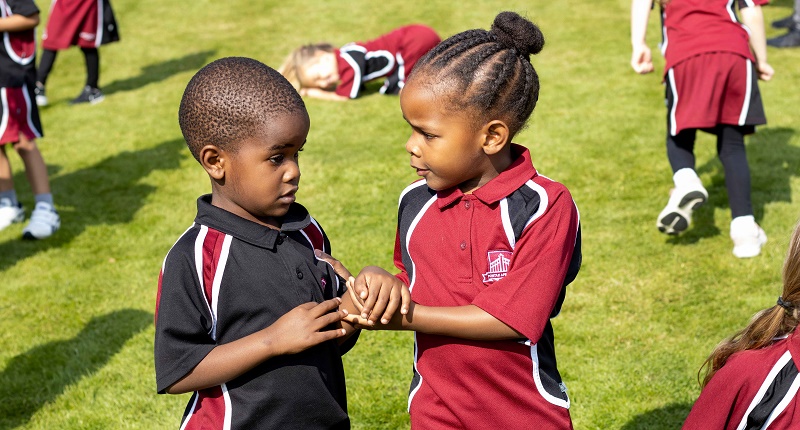


Find out how Gateways could provide the perfect educational environment for your child.
Find out more
Big enough to challenge, small enough to care
The CCF (Army) is the Army Cadets section of the Combined Cadet Force. There are over 260 CCF Army Sections with approximately 29,000 cadets and 1,700 adult volunteers. The Army Section CCF aims to promote the qualities of responsibility, self-reliance, resourcefulness and a sense of service to the community. Activities include drill, skill at arms, shooting, fieldcraft, first aid and adventurous training activities.
The aim of training in the Army Section of a CCF is to develop the cadet’s power of leadership. Cadets are expected to develop self-reliance, responsibility, resourcefulness and a sense of service to the community.
On average cadets serve around four years in the CCF and training is steadily progressive allowing them to progress from Basic qualifications, through Advanced and on to the Leadership levels of achievement.
Joining the CCF (Army) provides a wonderful opportunity to take part in Army themed activities and events, all of which focus on building self-disciplined individuals with self-courage and a sense of worth. As a youth organisation, the CCF (Army) strives to give cadets a fun and safe experience. There is no commitment or expectation on cadets to join the regular Armed Forces when they have completed their schooling.
Cadets joining the CCF (Army) can expect to spend up to 40% of their time on adventurous training activities. By joining the CCF (Army) cadets also have the opportunity to get involved with volunteer and charitable work in the community and to gain nationally recognised qualifications such as the Duke of Edinburgh’s award and BTECs.
Our Army Section wears the cap badge of the Corps of Royal Engineers and is parented by 135 Geographic Squadron Royal Engineers, an Army Reserve unit that supports 42 Engineer Regiment (Geographic). The Regiment is a Joint Force Command specialist Royal Engineer unit that provides geographic support to all elements of UK Defence; particularly to Army headquarters, formations and units. The unit is based in Ewell and provides assistance with training, support and equipment from time to time.
Cadets follow a syllabus called the Army Proficiency Certificate (APC) which gets more challenging each year. APC training is designed to be practical, rather than classroom-based, whenever possible. The training should be interesting, imaginative and purposeful and include competitions, exercises and games.
The APC (Basic) syllabus consists of five subjects and sets a standard that is possible for cadets to achieve within one year:
Successful completion of the APC qualifies a cadet to wear the Red star in addition to the award of the Certificate. Elements of the APC Syllabus can be accredited towards the Duke of Edinburgh’s (DofE) Bronze Award.